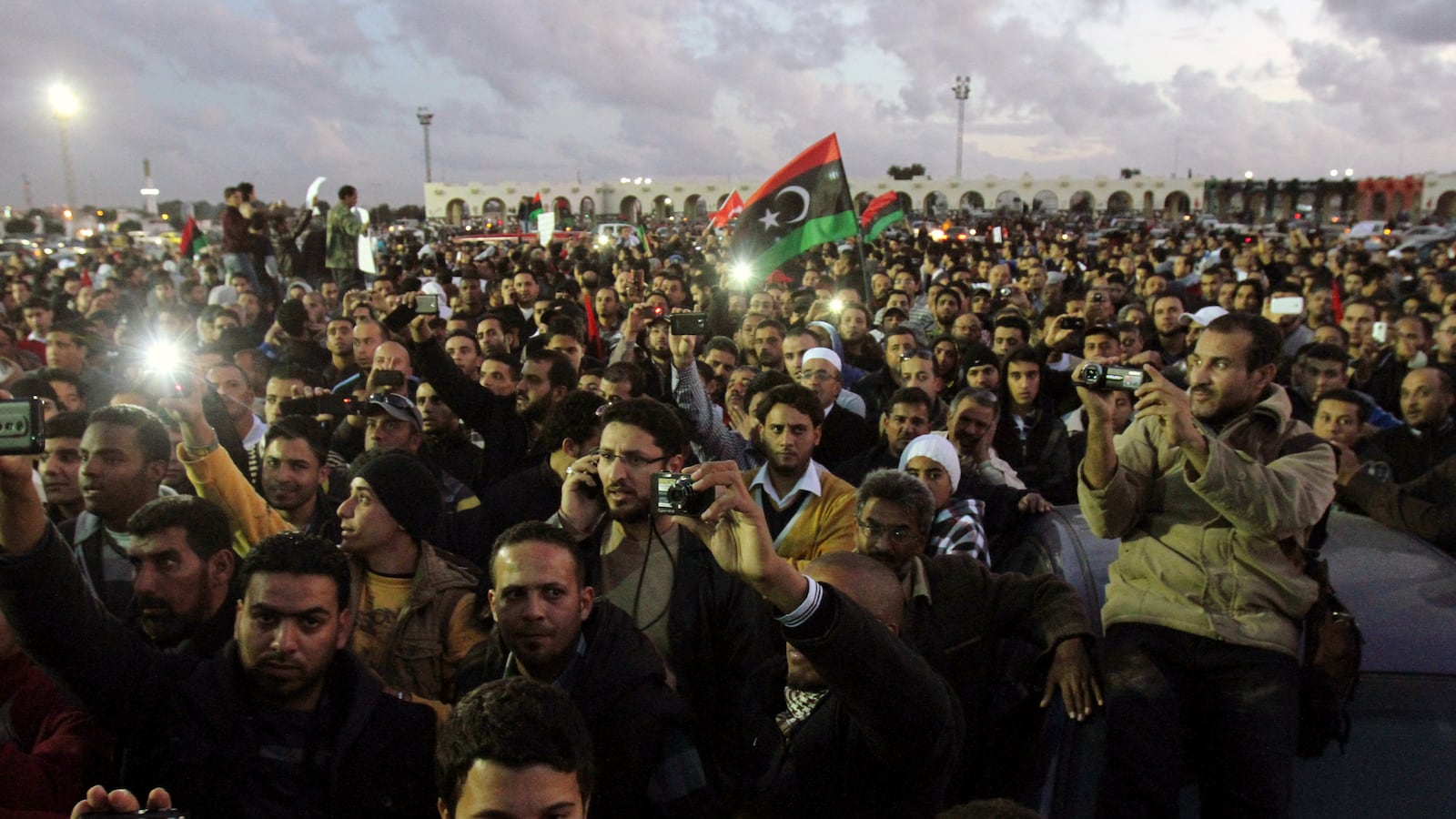
No, Libya did not cause Mali.The isolationists of the far right and the far left set the tone. But a whole subset of the political class composed of more or less reputable pundits, bogus experts, and armchair strategists followed right behind them, as they so often do.
Supposedly, we are in Mali because of the intervention in Libya.
Supposedly, putting an end to Gaddafi’s dictatorship opened Pandora’s box in Africa.
Which would mean that Nicolas Sarkozy, Hillary Clinton, David Cameron, and a few others are supposedly responsible, directly or indirectly, for the rise of Islamism in the Sahel, for the collapse of the failed states of the sub-region, and for the deaths at the In Amenas gas plant in Algeria. Just wait a little longer and, when the time comes to begin complaining about the quagmire in Mali, they will still be to blame.
Ordinarily this argument could be laughed off. But because imaginations are running wild and all are having their say on the great “destabilization” allegedly resulting from the Libyan intervention, it is vital that we dot the i’s and cross the t’s.
1. Al Qaeda in the Islamic Maghreb was not an after-effect of the assault on Benghazi. It first appeared six years ago, a successor to the old Salafist Group for Preaching and Combat, which itself was a splinter group of the Armed Islamic Group in Algeria. At that time, it claimed responsibility for numerous suicide bombings, savage hostage-takings for ransom, and attacks on airports and embassies. Like many of his lieutenants, Mokhtar Belmokhtar, the mastermind of the In Amenas operation, is an Algerian national, a veteran of the early days of terrorism who has nothing to do—zero—with Libya.
2. Muammar Gaddafi, contrary to what he tried to get the world to believe during the last weeks of his grotesque regime, was never a bulwark against terrorism. He played the terrorist game. He made use of it. Blowing hot and cold, alternating bloodbaths with showy, overacted pardons, he released jihadists onto the terror market the way speculators sell a currency to undercut its value. In Syria, the Assads did the same thing. For a long time, the sorcerer’s apprentices of Algeria’s police state did, too, and they may be doing it still. The effect of such operations, when carried out while suppressing any form of normal opposition, is to make Islamism appear as the sole alternative to the regime.
3. Libya’s young democracy, far from having reinforced Islamism, has weakened it. That Libya’s democracy is still fragile, that it is struggling to build a police force and army worthy of the name, that it still lacks the power to disarm the militias—all that is true. But no less true is the fact that in the first free elections the country has known in 42 years the Islamists were beaten flat out and that the same elections brought to power a man, Ali Zeidan, whose entire life has been a plea for human rights, a plea against fanaticism, a plea for rapprochement with the West. I know Zeidan. I interacted with him every day during the eight months of the Libyan war. And the fact is that radical Islam has no more resolute foe in the region than him.
4. There is no denying that there remain in Libya Islamists who await their opportunity to exact revenge. But here, too, it is important to be precise. And precision means acknowledging two facts. First, when some of those lurking Islamists assassinated Christopher Stevens in Benghazi, tens of thousands of Libyan citizens took to the street to demand justice and to mourn their “brother, the ambassador.” And, second, because no situation is exactly like any other, it turns out that most Libyan Islamists have always been Libyan Islamists focused on jihad at home and largely uninterested in the global version. A minor difference? Perhaps. But when it comes to Mali, the difference is huge. And those who claim to be following the Libyan scent to explain the Sahelian fixation of Al Qaeda in the Maghreb are on the wrong path.

5. As for the arms, the AK104s and F5 rockets that have been reported; as for the “yellow, brown-flecked” bulletproof vests that “an anonymous source” claims to “resemble” those “delivered by Qatar and France” to the fighters in Misrata, those reports remain, for the moment, no more than rumors. In response to those rumors, contrary evidence can be adduced. It was Gaddafi’s mercenaries, not the rebels of Misrata, who served as the auxiliary of the Algerian, Mauritanian, and Malian leaders of AQIM. The weapons used recently against French soldiers in Operation Serval came not from the meager stocks that the rebels buried in their yards but from the huge official arsenals that the mercenaries pillaged before retreating across the border to Gao and Timbuktu. If one has to choose among suppositions, wouldn’t it make more sense to see in the Mali problem the last toxic effect of the Gaddafi regime than as the first unanticipated consequence of the liberation of Libya? But of course there is no one so deaf as the one who chooses not to hear.
Too many “friends of Africa” are lulled by the idea of a never-changing land locked in its eternal rhythms, as if detached from history. But Africa is changing—for the better and also, alas, for the worse. And, as is always the case when we are confronted with a new and poorly understood situation, many are tempted to trot out a familiar litany of simplistic ideas and diabolical conspiracies.
Let’s not blame Libya for what we don’t understand.
Translated from the French by Steven B. Kennedy






